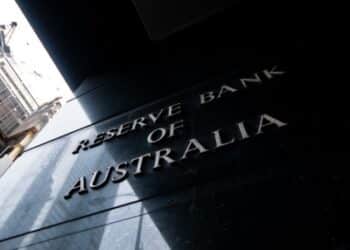The Government’s Mid-Year Economic and Fiscal Outlook (MYEFO), released this week, did not tinker with the basic tax structure of superannuation – a move welcomed by the peak industry body, the Association of Superannuation Funds of Australia (ASFA).
“The Government in successive budgets and statements since 2009-10 has already achieved $7.5 billion in budget savings from superannuation,” said ASFA chief executive Pauline Vamos in response to the MYEFO.
“Further changes to the taxation of superannuation or tightening of contribution caps are neither necessary nor desirable. It is good that the MYEFO process accepts this”.
There were fears the Government would slug high-income earners through the super system, or remove some Self-Managed Super Funds’ concessions to find budget savings. Falling commodity and tax receipts have crunched Australia’s fiscal position and cast serious doubt over whether a budget surplus is possible.
Instead, the Government attacked large corporations by requiring those with annual turnover of more than $1 billion to pay tax monthly from January 2014, rather than quarterly – a reform that attracted widespread criticism from business this week.
The main superannuation surprise was the Government’s grab on lost super accounts. A Westpac survey last year found $19 billion of unclaimed super was wasting away in fund manager accounts, and that almost one in two super fund members had unclaimed super in other funds.
From December 31, 2012, the account balance threshold for inactive accounts, and accounts of uncontactable members, will rise from $200 to $2,000. These accounts will be transferred to the Australian Tax Office.
Also, the period of inactivity before an account of an unidentifiable member is required to be transferred to the ATO will be reduced from five years to 12 months. The Government will pay interest equivalent to Consumer Price Index (CPI) inflation on all superannuation accounts reclaimed from the tax office from July 1, 2013.
Transferring lost super to the ATO is expected to raise $675.2 million over the four-year estimates period, with $555 million raised in 2012-13.
The Federal Government said: “These reforms will benefit individuals with small lost accounts by preventing these accounts from being eroded by fees and charges and protecting the real value of these balances. They will also complement other initiatives put in place in recent years to help reunite members with their lost superannuation accounts.”
Shadow assistant treasurer Mathias Cormann said super savings would pay for half of the Government’s forecast $1.1 billion budget surplus. “Labor wants to give the ATO the power to go after people’s super savings after 12 months of inactivity in their account instead of the current five years,” said Cormann.
“There is no doubt this will increase the risk that some people will lose their money to the ATO before they have had the chance to make their own arrangements to consolidate their super accounts.”
He added: “It is quite extraordinary and takes spin to new levels that Superannuation Minister Bill Shorten would describe these cash grabs as measures to ‘boost super savings’.”
Cormann said Labor had yet again targeted self-managed super by increasing government charges by a further $319 million over the current forward estimates in the MYEFO.
The lost superannuation account reforms received a mixed industry response. ASFA called on the Government to move back the reform’s timing until mid-2013, but other commentators described the reform as a sensible way to help people find lost superannuation.
It’s not clear how much the superannuation industry will lose in terms of fees as unclaimed super is transferred earlier to the ATO, although it would be small in the scheme of the overall superannuation system.







